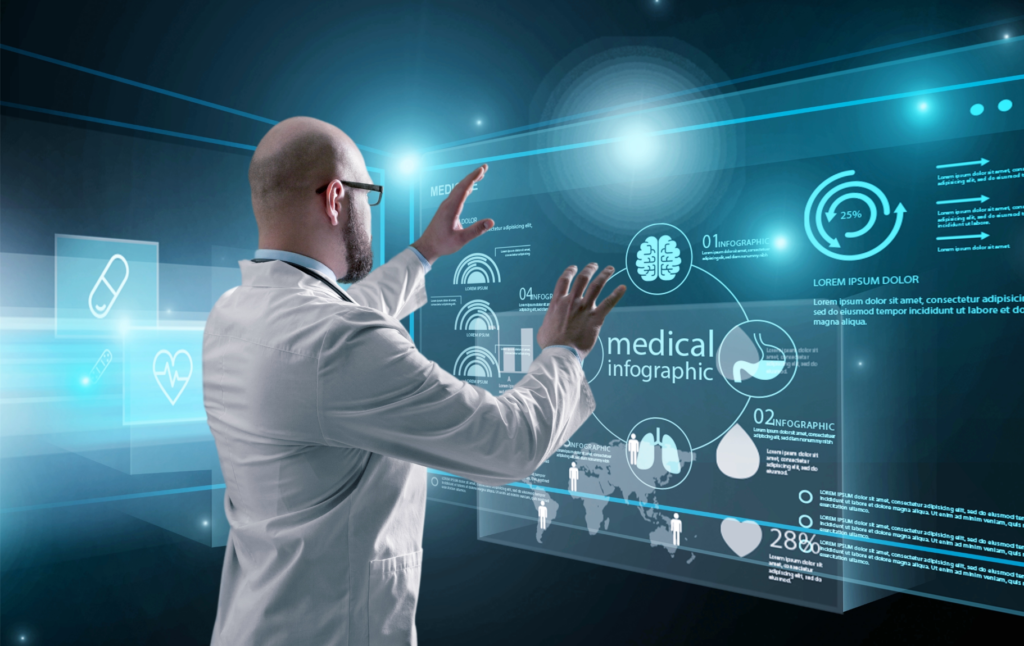Artificial Intelligence (AI) has become a cornerstone in the evolution of medical sciences, revolutionizing healthcare practices worldwide. Through innovative applications and advancements, AI is transforming the present landscape of medical sciences while laying the groundwork for a future where precision medicine and personalized healthcare are the norm. In diagnostics, AI-powered algorithms analyze medical images with unprecedented accuracy, aiding in the early detection of diseases such as cancer, cardiovascular conditions, and neurological disorders. Moreover, AI-driven predictive analytics enable healthcare professionals to identify at-risk patients and intervene proactively.
In addition to diagnostics, AI is reshaping treatment strategies and enhancing patient care across various medical specialties. In oncology, AI algorithms analyze vast amounts of genomic data to identify tumor biomarkers and predict treatment responses. Furthermore, AI-powered robotic systems assist surgeons in performing complex procedures with unparalleled precision, reducing operative times and minimizing the risk of complications. Beyond the operating room, AI-driven virtual health assistants provide patients with personalized medical advice, monitor chronic conditions in real-time, and promote healthy behaviors, thus empowering individuals to take control of their health and well-being.
Looking ahead, the integration of AI into medical sciences holds immense promise for the future of healthcare delivery and patient outcomes. With continued advancements in AI technologies, medical professionals can harness the power of data-driven insights to develop more effective treatments, predict disease progression with greater accuracy, and optimize clinical workflows for enhanced efficiency. Moreover, AI-driven innovations such as telemedicine, remote patient monitoring, and wearable health devices are democratizing access to healthcare services, particularly in underserved communities and rural areas. As AI continues to evolve, it will undoubtedly play a pivotal role in shaping the future of medical sciences, ushering in an era of precision medicine, proactive healthcare, and improved quality of life for individuals worldwide.
read more
image source








